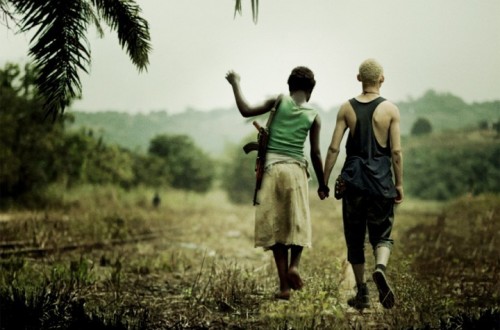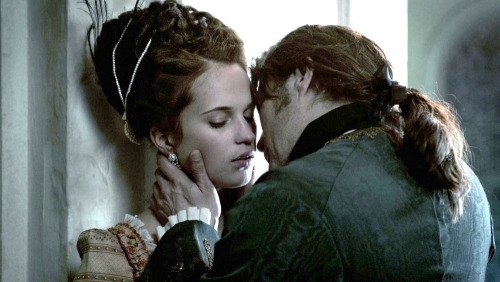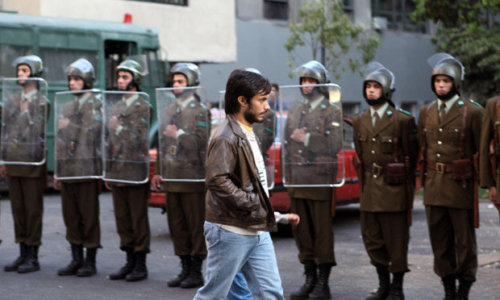The Broken Circle Breakdown
86th Academy Awards 2014
4/5 Stars
Nominated for 1 award.
Nominated for Best Foreign Language Film (Dirk Impens).
Watched August 19, 2014.

This film, with all of its positives and negatives, pulled at my heartstrings. It is told in a non-linear style, which adds a bit to its mystery and builds up, rather than tears down the relationships within the film. It is a foreign film based in the Flemish city of Ghent in Belgium.
Elise (Veerle Baetens), a realist religious tattoo artist, and Didier (Johan Heldenbergh), a blue grass romantic atheist, fall in love pretty much at first sight. Their intense, passionate love is communicated very well through mostly images versus dialogue. When it turns out that Elise has quite the voice, she joins the band and the film is regularly populated by their folksy bluegrass renditions of old American classics. This is probably my favorite part of the film–I downloaded the soundtrack immediately after the end credits.
Within months Elise falls pregnant. Their love blossoms and grows. The filmmakers show a little bit of their daughter Maybelle’s (Nell Cattrysse) youngest years, but at still a very young age they find out that she has cancer. This puts their love to an extreme test and becomes a downward spiral that might be hard to get out of.
I really enjoyed the color grading and story telling in this film. There are certain scenes that were perhaps a little too long and really pound their point into the audience. It is also guilty of melodrama. I liked the way the filmmakers chose to tell the story of their love–how it started and especially its highs. They also tell Maybelle’s story very well. Like the love story, they communicate her illness with a lot of imagery and song and not as much dialogue. Perhaps I liked this because it is a foreign film so there were fewer captions to read, but really I think it is because of the artistry.
When things begin to spiral is when the film slows down and has a much more linear time quality. While this portion of the film is powerful and climactic, its style changed and became darker and less etherial. We are pulled with the couple into their moments of despair, whether in the quietness of their own home or while on stage performing for an audience. Their glass bubble shattered the moment little Maybelle got sick and they both feel like they will never be whole again.
Like I said, the story is pretty melodramatic from start to finish. The filmmaker’s didn’t seem to attempt a fiercely realistic story. Perhaps that is a strength. I think at some point I will watch the film again, but it will probably be more for the music than it will be for the story as a whole. I liked the characters. I rooted for them and could relate to them. I liked their story in the beginning. It was simple and romantic, although I wondered how on earth they could pay for everything. I liked when the melodrama was punctuated by full performances.
If you like this type of music, I would definitely recommend the film to you. If you don’t like the music, make sure you like dramatic stories before you add this film to your list.



